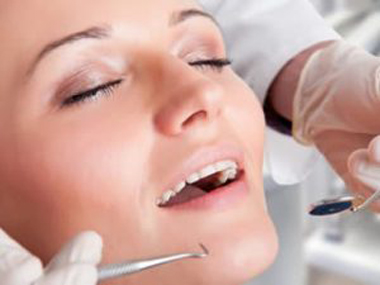Can you tell me how much sedation dentistry costs? I have put off dental work for some time, knowing that I have severe decay. I have delayed going to the dentist because I did not have dental insurance for years. And although I got dental insurance in September of last year, I did not make a dental appointment due to anxiety. I’ve had three dentists over my lifetime, and two of them had poor patient care and were unnecessarily rough. I always left appointments in pain regardless of the procedure. Last weekend I fell and cracked a tooth. The crack doesn’t look that bad, but my tooth hurts. The pain throbs on and off. I think that I can make a dental appointment if I get sedated, but I would like to know how much it costs. If sedation is expensive, I can save money from each paycheck over the next two months. Thank you. Amit
Amit,
Thank you for submitting your inquiry to our office. Your throbbing tooth pain is a symptom of internal tooth damage. See a dentist promptly for an examination.
Although sedation dentistry fees vary and you must speak with your provider for exacts costs, we can provide estimates.
How Much Does Sedation Dentistry Cost?
The cost of sedation dentistry depends on several factors, including the type of sedation you receive, the length of your dental appointment, and where you live in the U.S. because dental fees vary by location throughout the country.
Types of Sedation
Although dental offices vary with the sedation services offered, the types of sedation available include nitrous oxide, oral conscious sedation, and IV sedation. Many dental offices do not offer sedation at all, but others provide at least one option. The costs below are estimates. Call your dentist’s office to ask what type of sedation is available and how much it costs.
Sedation Dentistry with Nitrous Oxide
Nitrous oxide, also known as laughing gas, is the lowest level of sedation. You breathe in nitrous oxide through a small nose mask during your dental procedure. After the procedure, your dentist will give you pure oxygen to breathe in and quickly reverse the effects.
How much does nitrous oxide cost?
The average cost of sedation dentistry with nitrous oxide in the U.S. is $80 to $150 for the first hour. Your dentist may charge an additional fee if you require nitrous oxide longer than an hour.
Oral Conscious Sedation
Oral conscious sedation is in pill form. Many dentists use the medication Halcion (Triazolam), while others may offer diazepam or lorazepam for sedation. You will take the medication before your dental appointment so that you can arrive relaxed.
How much does oral conscious sedation cost?
The average cost of oral conscious sedation in the U.S. is $250 to $500 per hour. If you need to remain sedated beyond an hour, you may incur an additional fee.
IV Sedation
Intravenous sedation works faster than nitrous oxide and sedation dentistry. The amount of sedation your dentist gives you can vary from making you drowsy to putting you in a deep sleep.
How much does IV sedation cost?
Although the depth of sedation affects the cost, on average, in the U.S., IV sedation costs $500 to $1000 per hour with an additional fee beyond an hour.
Will Insurance Cover the Cost of Sedation?

Each insurance plan differs. Contact your insurance provider and ask if they provide benefits for sedation dentistry. Most insurance plans that offer sedation benefits have restrictions on the length of time coverage is provided for a procedure. For example, an insurance plan may provide benefits toward the first hour of sedation only.
Your dentist’s office will explain sedation dentistry fees and how long you will need sedation during your dental procedure.
Plano, TX dentist Dr. Miranda Lacy sponsors this post.




